'Why Netflix's Heartstopper is the most important show on TV'
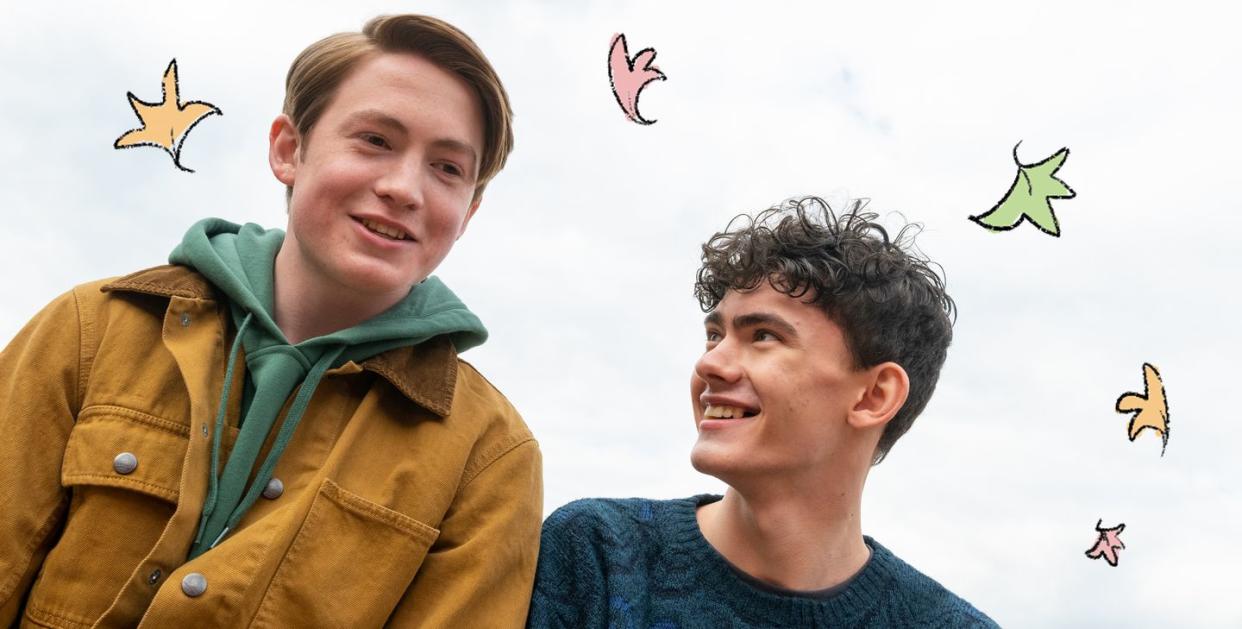
- Oops!Something went wrong.Please try again later.
- Oops!Something went wrong.Please try again later.
Throughout the first season of Netflix's Heartstopper, Charlie Spring finds comfort in the words of his teacher at school. Whether he's in need of relationship advice or refuge from bullies, Mr Ajayi's door is always open. And that struck such a chord with me. The idea that there could be a safe space for queer kids like Charlie – or me, once upon a time – at school.
Alice Oseman started writing the gorgeous graphic novels that this show is based on in 2017. And now, in 2023, Heartstopper's devoted fan base is about to see Charlie's relationship with Nick continue to come to life on screen.
It's impossible to measure precisely how important this show is, not just for existing fans, but also for everyone else who will now stumble across Oseman's work - and season two - for the very first time.
Sure, LGBTQ+ focused shows are no longer as rare – or stereotypical – as they were during my formative years, but they're still few and far between. And that's especially true when it comes to stories that explore the realities of queer teen life, not the quasi-adult antics of shows like Euphoria.
Misguided fears around queering children – kids can be gay, people! – are also to blame for this, which is why most LGBTQ+ shows still focus on queer adults rather than their younger counterparts.
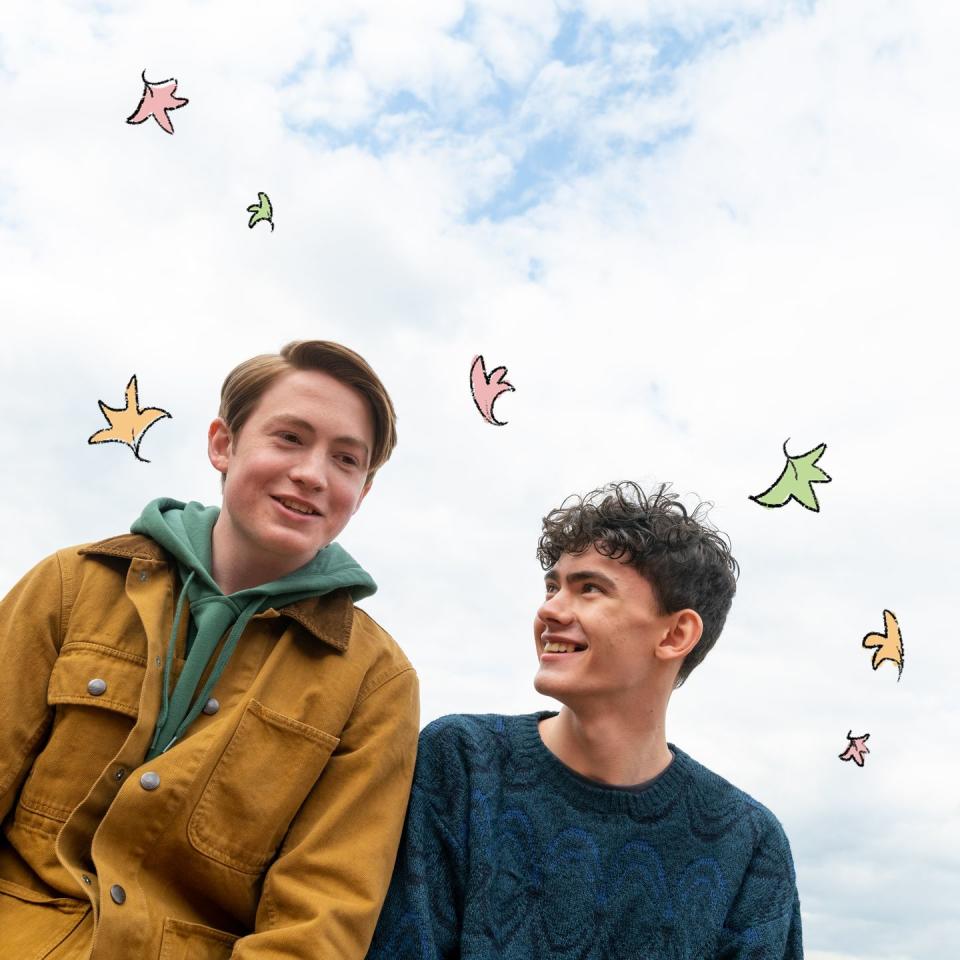
Regardless, the sweet, wholesome way that Nick and Charlie find each other mostly takes place offscreen, or within a side story that runs parallel to the main, apparently more important narrative. But here, Heartstopper centres queer love, affirming the feelings of young people watching who might be unsure or afraid to speak their truth.
Along the way, Nick and Charlie hopefully make some ignorant and/or bigoted viewers reconsider their stance on all things queer too. But that's not to say it's the show's place to teach or educate people. It shouldn't have to. Yet thanks to charming performances from Joe Locke and Kit Connor, not to mention the cast as a whole, Heartstopper helps change minds regardless.
I just wish that there had been a show like this when I was growing up.
As a gay British man who also used to play rugby in school, Heartstopper feels like it was written very specifically for teenage me (in a narcissistic, improbable kind of way). The me who went to school throughout the Section 28 ban of all things queer. The me who felt desperately alone and unseen, years before I could try and Google my identity like Nick does on the show.
It's uncanny, really. Like a window into the teen years I could have maybe enjoyed if I had just been born a couple of decades later.
Established in 1988, Thatcher's cruel Section 28 mandate essentially erased even the notion of anything that's not straight within the British education system (which is also happening today in Florida through its deeply disturbing "Don't Say Gay" legislation). And in a similar way, I've tried to erase memories of my own time within this system, as much as possible.
While my straight friends often look back on school as a fun, carefree time in their lives, what I remember most is that confusing mix of isolation and those times where I desperately wished people would leave me alone.
But bullies are going to bully. And that's true in Heartstopper too. Because even with all the progress we've made, there will always be bigots who strike out at anything, or anyone, they perceive as different.
At least the bullying was never physical. No one ever tried to beat me up – it probably helps that I was tall – and for that, I'm grateful. Although, I will say that it's both weird and wrong to feel lucky about something that most other people just take for granted.
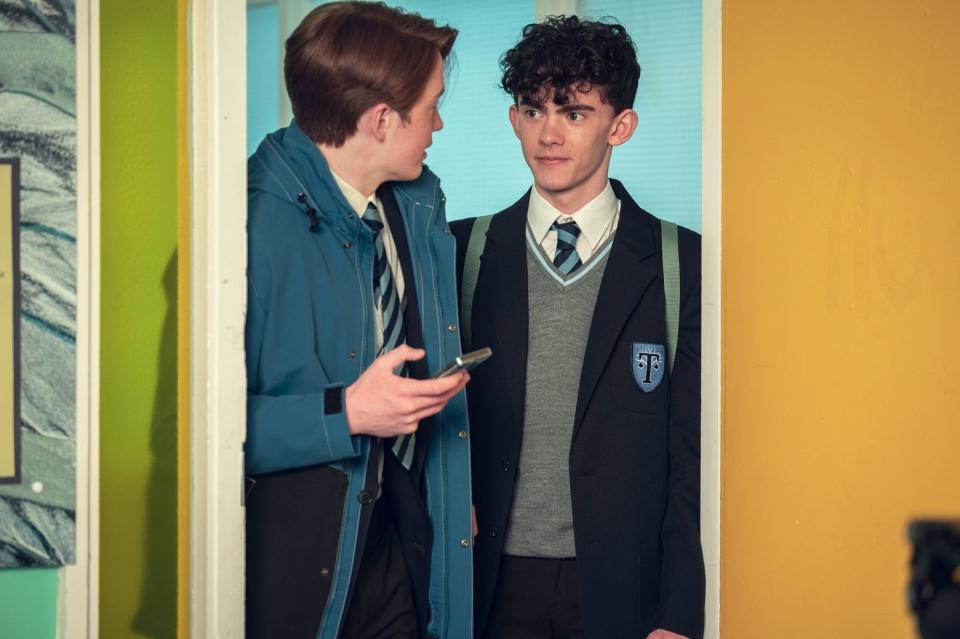
I never felt safe, though. Far from it, in fact. Boys in school would steal my things every day, laughing as they threw it around the classroom when the teacher wasn't looking. Others would follow me home and call me gay slurs as they tried to take stuff out of my bag. Even friends of mine would describe things they didn't like as "so gay", because that's just what everyone did back then, myself included.
Without a Mr Ajayi to talk to, I retreated inward instead, doing everything I could to hide the parts of me that seemed to disgust everyone around me.
The idea that young queer kids actively choose to be queer, especially back then, is laughable. I honestly would have burned all my Britney CDs and posters just to appear straight for a day. And if you know me, you'd know that's a big deal.
It felt like every word I said, every movement I made, was under constant scrutiny, if not from others, then from myself. It was exhausting, and the damage that does to a person over the years is incalculable.
But it never even occurred to me that I could just come out as queer. There were no shows like Heartstopper, and no one was out in my school either, not in the late '90s and early 2000s. There was no one like Charlie to befriend or be inspired by. It was just a world of straight people, which was populated by an alarming number of Harrys, who were somehow even worse than Oseman's depiction of them on the show.
I remember my closest friends would often defend me, proudly telling others that I obviously wasn't gay. They were trying to be helpful, and this sentiment did come from a place of genuine love. They just didn't know any better at the time, and how could they?
My friends didn't know the truth about me. And there was nothing out there like Heartstopper to affirm queerness as something you could actually be proud of. It was just a freakish thing that didn't belong in school, or anywhere else either, if most newspapers were to be believed back then.
It shames me to admit that hearing my friends defend me and say I was straight actually made me feel good, because I hated that part of myself too. Teenage me wouldn't have been able to fathom the bravery it took for Charlie to come out, or for Nick to start embracing his bisexuality in the way that he does.
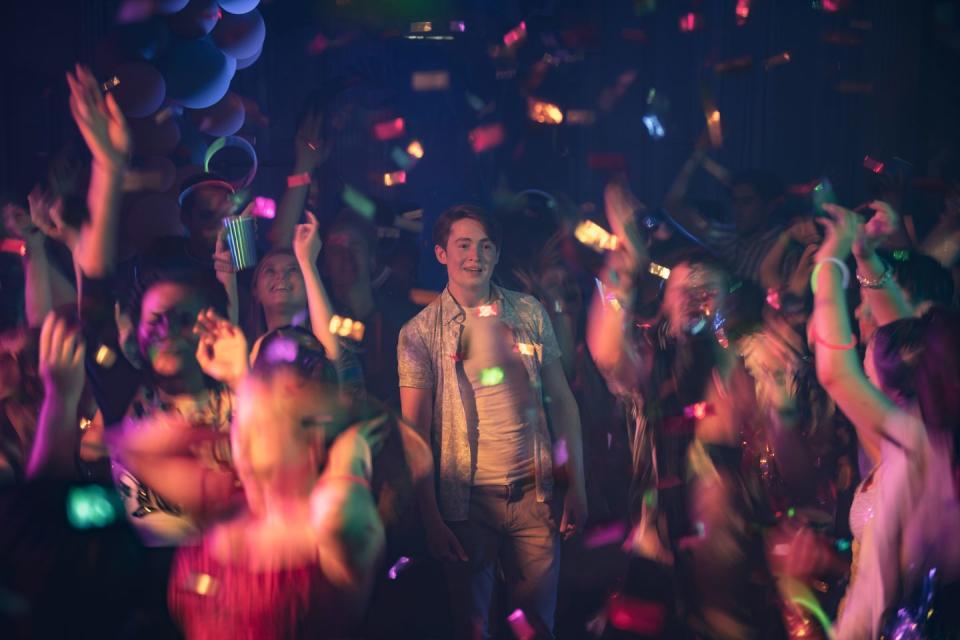
At one point in season one, Nick wonders if he's more attracted to Keira Knightley or Orlando Bloom in Pirates of the Caribbean. And I can so clearly remember going through a very similar conflict with my favourite show. Am I into Buffy or Angel? Buffy or Riley? How about Buffy and The Master? Pretty much anyone was fair game at that point. I just wish my family coming-out story shared more parallels with Nick's.
That's not to say it's easy for Nick or Charlie either – Heartstopper certainly doesn't shy away from the struggles of being out at school – but through their central romance, there's still a hope for love and acceptance that was entirely absent from my own life at that age.
After a while, you reach a point where you start getting used to the world hating you. It never stops hurting when someone cruelly others you, but eventually you accept it as a fact of life, and even something that you might deserve.
Charlie alludes to this when he tells Nick that he doesn't mind it when his friends are mean to him. He's used to it, after all. Nick rightly pushes back against this though, telling Charlie that he shouldn't have to accept cruelty of any kind. He's perfect just the way he is, and no one has the right to tell him otherwise.
I cried a lot during that scene, like I did throughout most of season one's eight episodes, to be fair. Full on ugly-crying. But nothing made me sob more than a moment near the end when Charlie breaks down in his sister's arms and wishes that he didn't exist anymore.
The darkness behind these words isn't really delved into much beyond that, not in season one anyway, and that makes sense given the lighter, hopeful tone of these first episodes. Yet it still made me think back to times when similar thoughts would cross my mind too. Times when I thought about how easy it would be to just step into traffic and end it all.
But Charlie comes out the other side of that, and so did I, eventually. In 2010, I even returned to school as a primary school teacher, determined to help and support my students in the ways that I once needed. But I still couldn't shake the impact of Section 28, seven years after it had been abolished.
I distinctly remember buying a picture book about two male penguins who adopt a baby and become fathers together. I was so excited to read it to my class, to teach them that same-sex parenting is the same as any kind of parenting. It's just love.
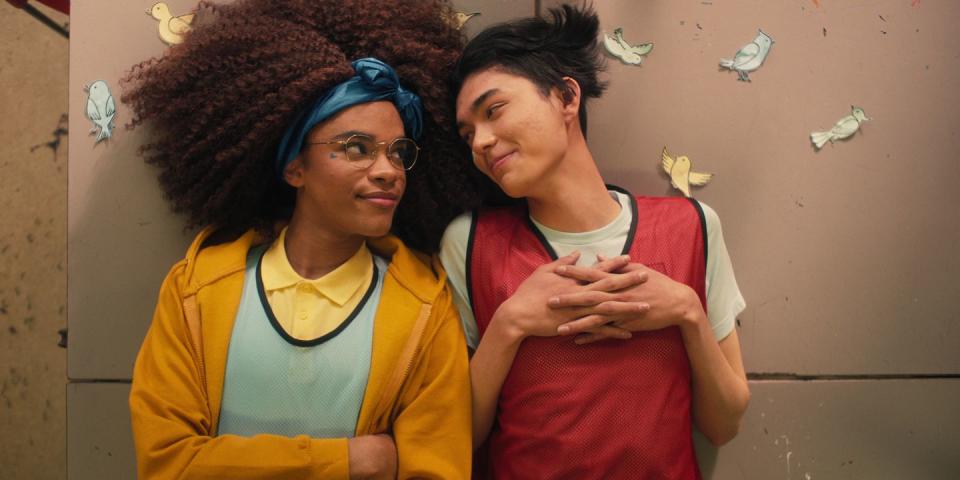
But then I heard rumours start to circulate around the parents of my students, rumours that I was queer. And suddenly, I grew terrified that discussing queerness of any kind with my class could put my job at risk, so I hid my identity in school. Again.
My colleagues knew, but even in the staffroom, homophobia would still rear its head. I'll never forget the day a teaching assistant told me that I wasn't a real man because I was gay. In the staff room. In front of everyone.
Watching Heartstopper has been such an overwhelming experience, because I see myself in so many of the characters, whether they embody my younger years or chunks of my adult life too. But that also makes the gulf between my experiences and theirs even greater.
Charlie's awkwardness feels painfully relatable, although I'll never know what it's like to be out so boldly at such a young age. Nick's confusion, especially coming from the world of sport, also hits home for me. Then there's the younger, adult version of me who is just so happy to see Mr Ajayi wear a Pride badge at work, yet also feels shame knowing that I wasn't brave enough to do the same.
Heartstopper isn't real, but it does reflect a better world than the one I grew up in. One where queer teachers can openly support and help young LGBTQ+ students in school. One where queer students can explore the same first crushes that straight counterparts take as a given. And one where safe spaces are more easily accessible, both in real life and on screen too.
That's not to say things are all equal in 2023 – especially for our trans siblings who are being persecuted relentlessly on multiple fronts right now.
And while I do feel much more secure in myself these days, there are still moments when I catch myself wondering if I seem too camp or not "masculine" enough. Every time my husband kisses me in public, there's always a small part of me that wants to push him away so no one freaks out or decides to attack us.
I'm not proud of that, but it's a reality for many who trained from an early age to suppress and hide the parts of ourselves that didn't "fit" the world we grew up in.
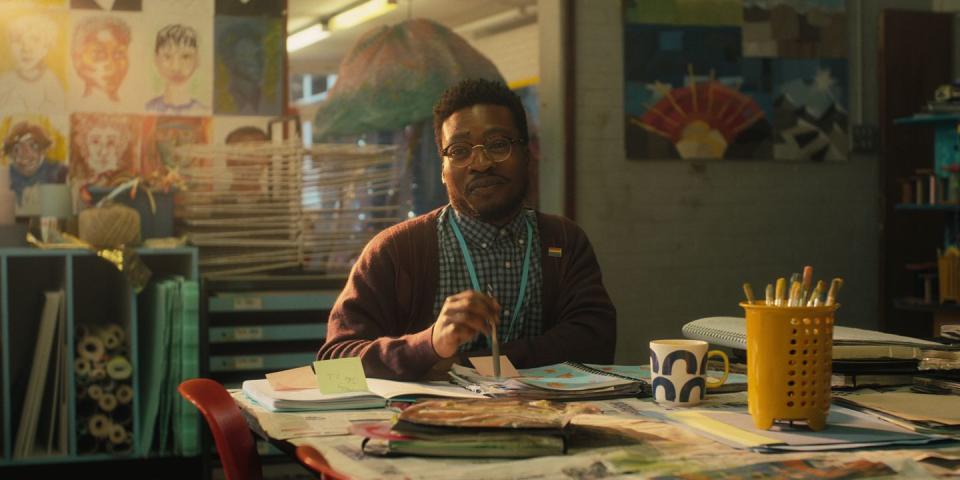
I'm under no illusion that one show can instantly change the world in a heartbeat. Yet the small, perfectly formed first season absolutely helped bring about those changes, teaching young queer people that they don't need to "fit" the mould, while also reminding older people that it's never too late to start loving yourself more.
Sure, I still wish that there had been a show like this on the air when I was growing up. But more than anything, I'm just grateful that Heartstopper exists at all. Because if you can't see yourself in the world around you, it's hard to see a future for yourself too. And no one should ever be made to feel like that.
Heartstopper season 2 is available to stream on Netflix from 4th August.
You Might Also Like

